A struggle emerged in our planning for this Washington trip. One responsibility we had was setting up one professional visit with an organization that aligned with our views and another organization that did not align with our views. While it wasn’t necessarily easy to set up appointments with like-minded organizations due to continuing COVID restrictions, we were able to set up quite a few including the following: the National Cattlemen’s Beef Association, Brookings Institute, Farm Credit Council, American Horse Council, National Association of Wheat Growers, Cargill Inc, Association of Equipment Manufacturers, Environmental Defense Fund, and the Institute for Trade Policy. The second responsibility of setting up an organization that did not align with our views proved problematic. Most organizations that we reached out to, including HSUS and PETA just didn’t bother responding to our requests at all. Others, including FARM (Farm Animal Reform Movement) just blatantly refused due to our differing views. This highlighted the obvious need for the leadership skill of building personal relationships to even “get an audience” with the opposition.
Following our morning meetings, we met at the National Association of Counties building for Reflections on the morning. An over-arching takeaway from most organizations we visited was the need for collaboration to get things done. For instance, the American Horse Council only has three full time employees and two part-time employees. There is no way, without collaboration with other groups, that they could be at all the right meetings and hearings taking place on the issues that matter to them. An interesting observation at the Horse Council was that for some issues, they can rally the entire industry and come to consensus quickly and decided what position to take on an issue. On other issues, their constituency is divided; therefore they remain neutral on those issues. Another take-away was determining how the work in Washington will impact those of us at home and how, as organizations, they can help interpret bills and disseminate the information to local members in an understandable way.
Next, we heard from the National Association of Counties and found out that they are a non-partisan resource for all 3069 counties in the United States. They concentrate on Federal issues through ten policy committees and a number of standing committees. They credited becoming a “subject matter expert” in having upper mobility in leadership. Interestingly on the governance side at NACo, the NACo executive committee consists of eight member elected officials: president, first vice-president, second vice-president and immediate past president, and four regional representatives elected by regional caucuses. The 2nd VP position is the position usually contested as that position advances to first VP and then becomes President. This structure is different than many organizations.
Following the presentation from NACo, our SMT groups gave their Leadership Search Activity presentations. Presentations came from insights at the Washington Monument, the Library of Congress, the National Archives, the Native American Museum, the Spy Museum and the Capitol Police and a small broadcasting company. Insights included needing not only a 30,000 foot view but a solid foundation; needing to be open to multiple voices and diverse experiences and truly hearing them; needing to adapt on the fly; sometimes leadership is noisy and messy; attitude is paramount to success; decompressing is essential; strong leaders lead with fortitude, strength and foresight; it’s OK to be wrong and change your mind, acknowledge it; without trust, leadership struggles.
We rounded out the day with a discussion of a Class XI fundraising idea and a Farewell to DC Supper at Capitol City Brewing.
Additional leadership tools came into play with classmate, Katie Knapp’s, arrangement of a meeting with the Farm Journal Foundation on Friday. It was truly a collaborative day as their resident gardener was able to learn much from our Minnesota farmers! The week in Washington was truly an invaluable learning experience for our class.
Submitted by Nada Carter
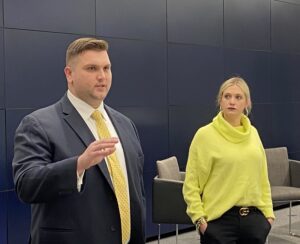
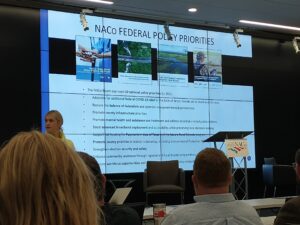
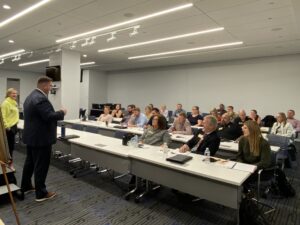
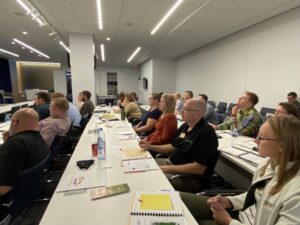
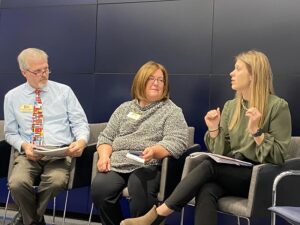
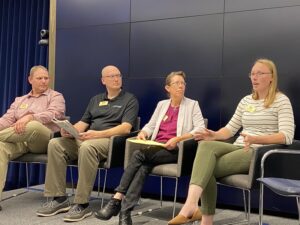
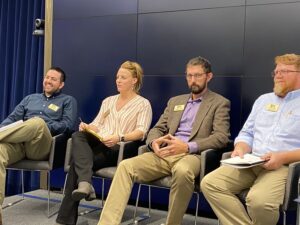
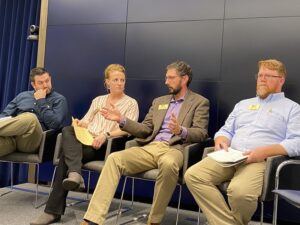
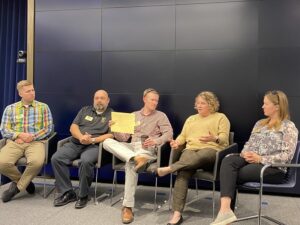
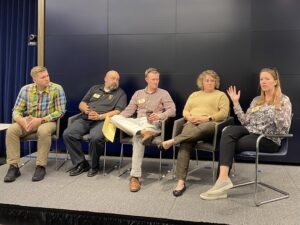
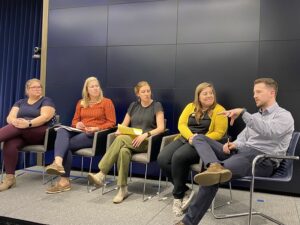
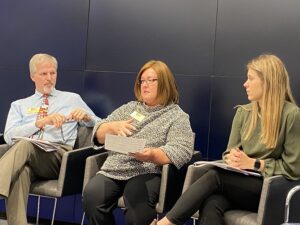
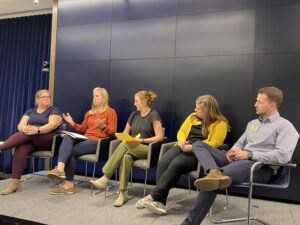
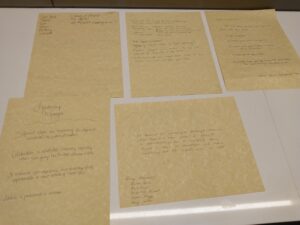
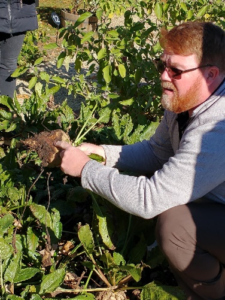
Comments